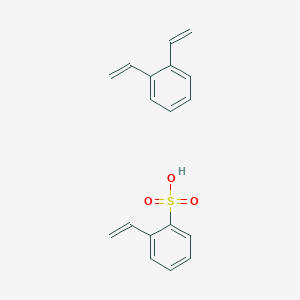-
Categories
-
Pharmaceutical Intermediates
-
Active Pharmaceutical Ingredients
-
Food Additives
- Industrial Coatings
- Agrochemicals
- Dyes and Pigments
- Surfactant
- Flavors and Fragrances
- Chemical Reagents
- Catalyst and Auxiliary
- Natural Products
- Inorganic Chemistry
-
Organic Chemistry
-
Biochemical Engineering
- Analytical Chemistry
-
Cosmetic Ingredient
- Water Treatment Chemical
-
Pharmaceutical Intermediates
Promotion
ECHEMI Mall
Wholesale
Weekly Price
Exhibition
News
-
Trade Service
TeneoBio's broader plan is to spin off its therapeutic assets into separate business units
.
One part is called TeneoOne, a tool that contains TNB-383B targeting BCMA
.
AbbVie is TeneoBio's BCMA project partner and provides funding for the development.
He can choose to acquire TeneoOne before or shortly after the completion of the Phase 1 study
.
Expansion of cell therapy library
The ORR data of the two CAR T cell products for BCMA at the ASH conference is impressive: Johnson & Johnson's cilta-cel (LCAR-B38M CAR T cell) has a remission rate of 97%, and Bluebird Bio’s bb21217 has a remission rate of 73%.
Although it is also limited by a wide range of toxic reactions
.
Johnson & Johnson reached a cooperation with Legend Biotech on LCAR-B38M in 2017.
The agreement involved an advance payment of US$350 million (see Table 1).
Subsequently, the drug was given at the American Society of Clinical Oncology (ASCO) annual meeting held earlier that year.
The researchers were deeply impressed
.
Although many pharmaceutical and biotechnology companies are actively developing T cell connectors, few companies are dedicated to CAR T cell therapy
.
So far, this field has mainly focused on autologous cell therapy for the treatment of lymphoma, another B cell antigen, CD19
.
Novartis initially collaborated with Carl June's team at the University of Pennsylvania to develop the first CAR T cell product, the CD19 targeting tisagenlecleucel approved by the U.
S.
FDA in 2017
.
Also in 2017, Gilead acquired Kite Pharmaceuticals for US$11.
9 billion and brought another CD19-targeted CAR T cell therapy Yescarta (Axicabatgene ciloleucel) to the market
.
However, Bristol-Myers Squibb (BMS) acquired CAR T pioneer Juno through the acquisition of Xinji in 2019.
The company is working hard to target its CD19 to liso-cel through the US FDA approval, which was finally approved in February 2021
.
BMS is still waiting for the US FDA's decision on ide-cel, which is a BCMA-targeted CAR T cell therapy for the treatment of multiple myeloma
.
At the same time, the company has stopped the research and development of the second BCMA targeting CAR T cell therapy orva-cel, writing off the cost of US$470 million
.
When the technology develops rapidly, spare CAR T cell therapy may be left
.
Large pharmaceutical companies may not like customized autologous T cell therapy products
.
However, off-the-shelf allogeneic cell therapies look more like traditional "bottled medicines
.
" If they succeed in clinical trials, pharmaceutical companies' enthusiasm for cell therapy may change rapidly
.
"Once someone cracks the code on the allogeneic CAR T, you will see a feeding frenzy," Gegen said.
"Many large companies have considerable sales in the field of oncology, but there is almost no history in cell therapy.
Achievements
.
If allogeneic cell therapy works as promised, they must accept it, because most of their income and channels may be at risk
.
"
In some areas, CAR T cell technology is modular assembly
.
Poseida has three BCMA targeted cell products for multiple myeloma
.
P-BCMA-101 is an autologous product that can recover the patient’s own cells; P-BCMA-ALLO1 is an allogeneic version in which gene editing is used to eliminate cross-reactivity; and dual CAR T (BCMA/CD19) It is a further adjustment of allogeneic cells for two multiple myeloma antigens
.
Devon Shedlock, Poseida's head of research and development, said: "The prototype autologous product P-BCMA-101 has allowed the company to learn a lot about manufacturing, safety and efficacy screening.
The most important thing is to understand the stem cell memory T The importance of cells (Tscm)
.
One of the mechanisms for disease recurrence or resistance to treatment is that many CAR T cells will not stick around
.
But if a product containing Tscm cells can be made, they can (In the bone marrow) implantation, then the possibility of recurrence can be reduced
.
" For allogeneic therapy, continuous use of Tscm cells to produce long-term bone chimera in the patient is another mechanism to improve the prognosis
.
Sedlock believes: "Allogeneic cells come from different people.
If allogeneic cells cannot survive or transplant, it is not clear whether it is possible to produce a lasting response without Tscm cells
.
"
When designing modular and systematic systems, other companies have turned to NK cells-lymphocytes.
Unlike T cells, they do not have to be activated by antigen-presenting cells
.
Early clinical application of CAR-NK cells has been shown to significantly reduce cytokine release syndrome and neurotoxicity
.
In addition, because they do not cause graft-versus-host reactions, they may be inherently suitable for off-the-shelf allogeneic applications
.
The main challenge for NK cells is that they are more difficult to engineer than T cells
.
"NK cells just don't like to take up DNA, whether by transduction or transfection
.
" Valamel said
.
Therefore, Fate Therapeutics performs engineering and DNA editing in the development of NK cell progenitors
.
After packing all the correct properties, iPSC can be used as a master cell line for an off-the-shelf manufacturing process
.
Just like a monoclonal antibody
.
Fate's BCMA targeting product is about to enter the clinic, illustrating the modular nature of CAR-NK cell assembly
.
This candidate therapy includes a high-affinity CD16 receptor that activates NK cell activity, IL-15 receptor fusion that allows NK cells to persist, and BCMA CAR that targets multiple myeloma cells
.
In addition, the expression of CD38 was knocked out to prevent the drug from self-destruction when used in combination with anti-CD38 antibodies such as Johnson & Johnson Darzalex (daratumumab)
.
Where BCMA products lead, other targeted immunotherapies may follow
.
The clinical development of products such as allogeneic T cell therapy and CAR-NK cell products is not only based on the experience of autologous cell technology, but also on the knowledge that bispecific antibodies and other T cells participate in the clinical manifestations of variants
.
After manufacturing and mastering the consistency of host versus graft rejection, it may slow down the development of adverse reactions, but BCMA targeted drugs are opening up a path for the development of cancer treatments with longer-lasting curative effects
.
Article reference:
Will blood cancer medical advances begin with BCMA?







